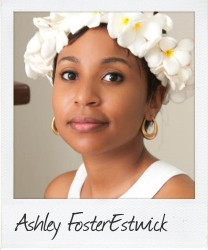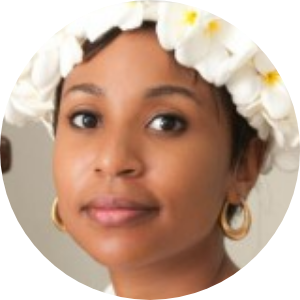“What is the real price of being a student?”
February 16th, 2017In Barbados, Errol Barrow day on 21st January is a public holiday marking the birth of the Father of Independence and the island’s first Prime Minister. Ashley Foster-Estwick, 25, a Commonwealth Correspondent from Barbados, writes that it is also a day for reflection on Barrow’s education policy.
Errol Barrow enunciated many quotes during his tenure in politics, but what struck me his ideology, which transformed the socio-economic landscape of this country and has in many ways caused both contention and joy.
Errol Barrow proposed that free tertiary education would transform a postcolonial Barbados. He espoused that a policy of “one graduate per household” should not be an idea but a reality. If we fast forward to 2017, many Barbadians remember four years ago as a time where the one graduate policy was undermined. Today this philosophy is still under immense pressure since the end of government subsidies for university education.
As an individual who believes in the transformative power of post secondary education and who associates with like-minded persons, I wanted to get responses to some hard questions about the traditional methods of education. What is the real price of being a student? Who does the university system benefit? Ultimately are universities, colleges and polytechnics more essential to individual development or to community development and international relations at large?
“Speaking from both my personal experience and working in an institution where students are considered below average, for them it’s a way to see the world beyond their impoverished communities.Tertiary education affords a better life financially and emotionally,’ said Ashlee Degannes, guidance counselor and past student of the University of the West Indies, St. Augus.
In the Caribbean, lower and middle income families have for a long time seen traditional subject areas such as law, medicine and banking as a means to provide a stable lifestyle for their children and extended family. It is safe to presume that this outlook has been correct given the upwardly mobile middle class on the island. Yet our overly saturated social sciences department at the University of the West Indies has awarded the most degrees to students. At the start of the 21st century, more emphasis was placed on the arts and humanities in an effort to keep up with the changing times. It would still be erroneous to claim that the majority of students entering any tertiary institution in Barbados or other neighbouring islands have done so after assessing the skills gap or needs of the country.
This lack of social responsibility may be a huge contributor to the lack of entrepreneurship, personal debt, the country’s high fiscal deficit and unemployment. For many young Barbadians, the first time a reassessment of free tertiary education and social responsibility occurred was with the revival of the Youth Entrepreneurship Scheme’s internship programme. The government sought to place greater emphasis on entrepreneurship, but by 2013 the government announced tuition fees would no longer be subsidised. The student count at the University dropped and a brain drain ensued. A further slap in the face of prospective students and advocates of scholarly training came with the publishing names of students who owed money to the Student Revolving Loan Fund; an institution which for over 40 years has loaned money to Barbadians wishing to pursue higher education.
High tuition fees, extreme textbook prices, unemployment, exorbitant visa taxes for overseas studies – all in conjunction with the changing political climate in the Trump era and post Brexit – usher in a more nationalistic outlook, with education being a high priority. The student today ponders the significance of studying. The physical and emotional challenges that student face are not to be taken lightly – sleep deprivation, anxiety, and isolation from friends and family. The sheer energy it takes can cause mood changes.
Alternatively, do we wish to see more violence from wayward youth dissatisfied with a system that is not working; those unable to pursue studies in an area of interest, or an increase in ‘block’ culture with younger boys sitting in the neighbourhoods all day? Then there is a factor of employment in blue collar jobs for those unable to attain scholarships to pursue an undergraduate certification. These are real questions which put into focus the ethical tasks of Caribbean educational institutions, and call for greater conscientiousness on the Caribbean students’ part.
Tertiary education must now be seen not as a human right but a privilege. The university employs persons in the community, conducts research for academic journals and other institutions such as Central Banks and hospitals. Academics from across the world partner with local lecturers to share knowledge and bridge divides in languages not often spoken. Student exchanges with sister universities have been increasingly prevalent in countries such as Canada, Japan, France, Spain, Panama and Costa Rica.
The price a student must pay today is not to be counted solely in monetary figures, but in the capability to be as selfless and strategic as possible. The need for skills training in languages, information technology and specialty fields is crucial. On the island of Barbados we must look at agricultural programmes with a finer lens and incorporate this from the primary level. The government can continue to lend a helping hand to the student through the most proactive measure of all – offering more apprenticeships at the secondary level to test a student’s true calling to a job of choice.
Reach me on Twitter @MissAshleyFE
photo credit: Horia Varlan Jigsaw puzzle of falling dollar sign with seamless background pattern via photopin (license)
…………………………………………………………………………………………………………………
About me: I was born and raised on the island of Barbados. While writing has always been an outlet for my creative ideas or thoughts, I never fully pursued it as a career. Instead I have studied business, languages and politics.
I work in administration and management sectors, hoping to use these skills to cross over into the management of public health. My hope is to use this platform as a way to stimulate conversation with my peers and reenergise my writing.
…………………………………………………………………………………………………………………
Opinions expressed in this article are those of the author and do not necessarily represent the views of the Commonwealth Youth Programme. Articles are published in a spirit of dialogue, respect and understanding. If you disagree, why not submit a response?
To learn more about becoming a Commonwealth Correspondent please visit: http://www.yourcommonwealth.org/submit-articles/
…………………………………………………………………………………………………………………







